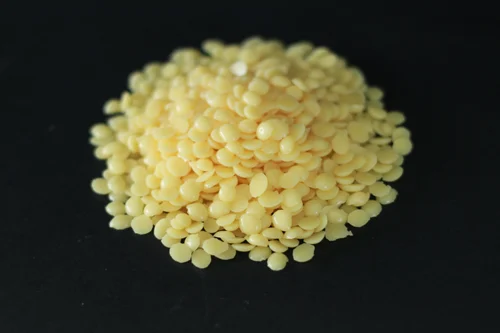The Ultimate Guide to Choosing the Right Wax for Your Needs
- Neytiri Nayeli

- Apr 9, 2025
- 2 min read
In case you are a bit new to making topicals and wondering what is the best binding agent to create your desired texture for a salve, lotion, or cream!
To best determine the answer to this question, you have to first know what each of the wax types are used for. Once you know which outcome you are looking to achieve, you can then decide how to bond your remedy! There is no wrong answer, but there can be a wrong strategy if you are unfamiliar with what each wax type does. No matter what, I do recommend that you keep each type handy so that you can be flexible when making topicals for yourself and others based on needs and preferences.
Waxes listed (in order): Emulsifying Wax, Candelilla Wax, Beeswax
Emulsifying Wax:
If you're looking to create a cream or lotion, this is going to be the best wax to use. Emulsifying wax creates a thickening agent to combine ingredients together that are oil and water based and would otherwise not mix without this agent. It is often used in cosmetics and topical pharmaceuticals and is made with a blend of Cetearyl alcohol, and polysorbate 60. There are simpler versions that are softer on the skin while others may cause irritation, especially if you have sensitive skin, eczema, or dermatitis. There are some ingredients you will want to avoid if you want to avoid skin irritations when creating your own topicals at home such as Lauryl Sulfate, Lauryl Ether Sulfate, and Sodium Lauryl Sulfate (SLS). This wax is also vegan friendly!
Candelilla Wax:
Your vegan alternative to beeswax, just with different benefits. This wax is extracted by boiling the leaves and stems of the Candelilla shrub. This shrub is native to some parts of the Southwest US region and Mexico. Its has a firm, yet smooth texture just like beeswax, may even be a bit smoother and easier to manipulate. There are no known side effects, and it is best used for salves, lip balms, candles, etc.
Beeswax (Non Vegan)
The benefits in beeswax are so incredible, but because it is invasive to bees, it is considered non-vegan. This wax method is all about preference, but if you are non-vegan you'll want to consider the medicinal properties of beeswax. It is generally considered safe, however if you are allergic to bees or pollen it could potentially cause side effects like skin irritation, allergic reactions, digestive issues, etc. if used in decent amounts. It is rare, but it does happen. Beeswax has antimicrobial and anti-inflammatory properties which will enhance any product with it's base. It provides a source of vitamin A, reduces stretch marks, helps improve skin elasticity, and so much more! It is the most medicinally beneficial wax base, however, it is produced by the wax gland of the honeybee. It is the biproduct of harvesting the honey.










Comments